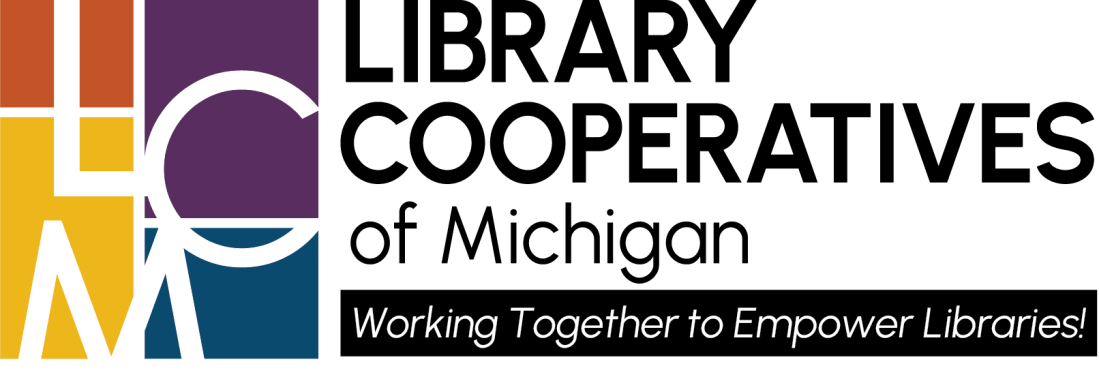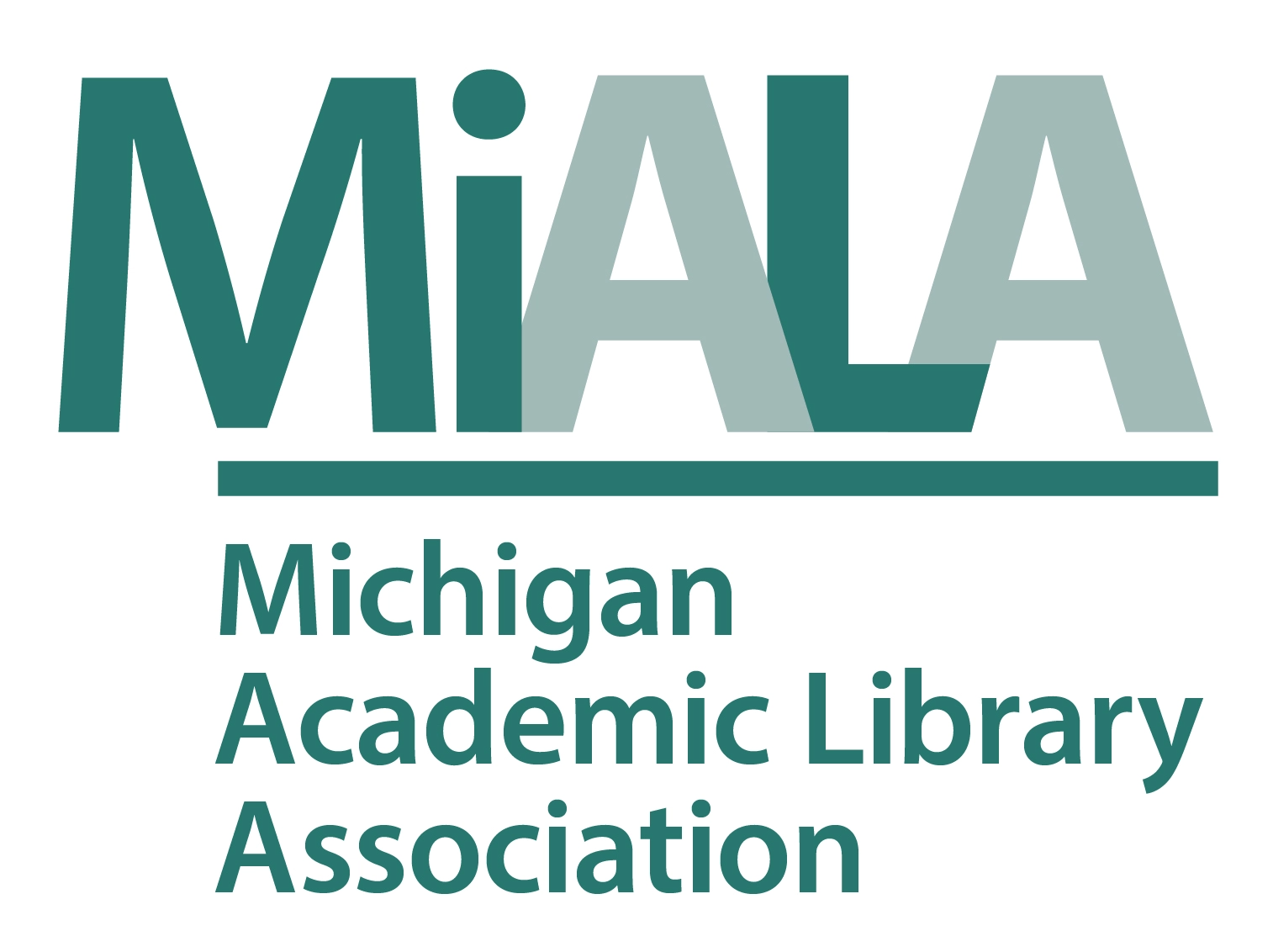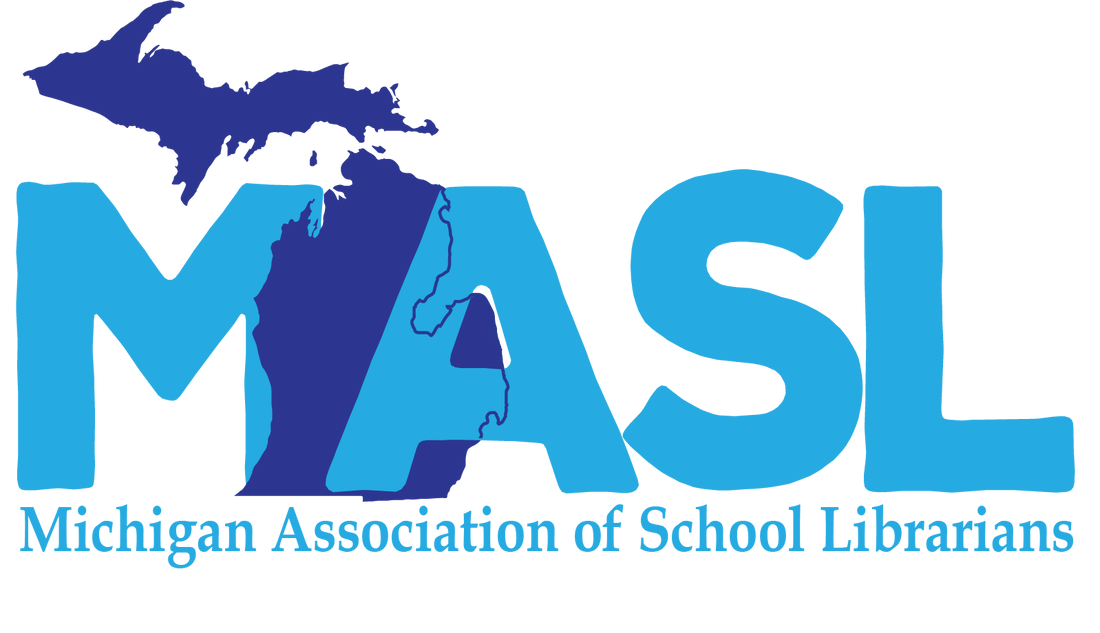- About
- Membership
- Education & Events
- Event Calendar
- Annual Conference
- Spring Institute for Youth Services
- Think Space
- Surviving and Thriving as a Public Library Director
- Leadership Academy
- Michigan Library Advocacy Day
- Youth Summit for the Right to Read
- Advocacy Hour
- MLA Connect
- MLA Connect On Demand
- Call for Proposals
- Vendor and Sponsor Opportunities
- Future Event Dates and Locations
- Programs & Services
- Advocacy
- News
- Job Board
|
Intellectual Freedom Home | MI Right to Read | TOOLKIT | Message Center | Request Advocacy Resource Funds First Amendment Challenges and Intellectual Freedom ToolkitNEWS (8/1/2023): New campaign urges Michiganders to protect their right to read and oppose book banning efforts
Intellectual freedom encompasses the freedom to hold, receive and disseminate ideas without restriction. Viewed as an integral component of a democratic society, intellectual freedom protects an individual's right to access, explore, consider, and express ideas and information as the basis for a self-governing, well-informed citizenry. Intellectual freedom comprises the bedrock for freedoms of expression, speech, and the press and relates to freedoms of information and the right to privacy. The United Nations upholds intellectual freedom as a basic human right through Article 19 of the Universal Declaration of Human Rights which asserts: “Everyone has the right to freedom of opinion and expression; this right includes freedom to hold opinions without interference and to seek, receive and impart information and ideas through any media and regardless of frontiers.” Read the Michigan Library Association Statement of Principle on Intellectual Freedom.
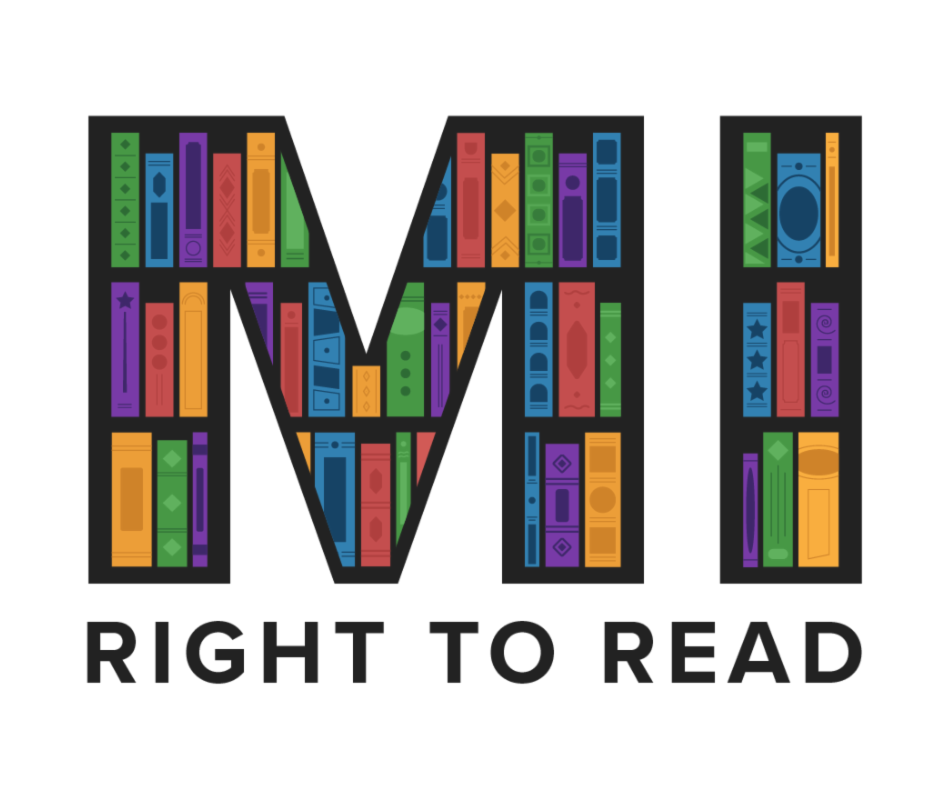
MI Right to ReadMI Right to Read is an initiative of the Michigan Library Association (MLA), coordinated through the leadership of the Intellectual Freedom Task Force. The coalition opposes any attempts to ban books from Michigan libraries based on content subjectively deemed inappropriate. Its purpose is to build a coalition, educate the public, oppose any current or future legislation that infringe upon First Amendment rights and intellectual freedom, and ensure that librarians across Michigan will be entrusted to continue to do their jobs and serve the needs of ALL individuals and communities. Visit MIRightToRead.com today and join the coalition!
|

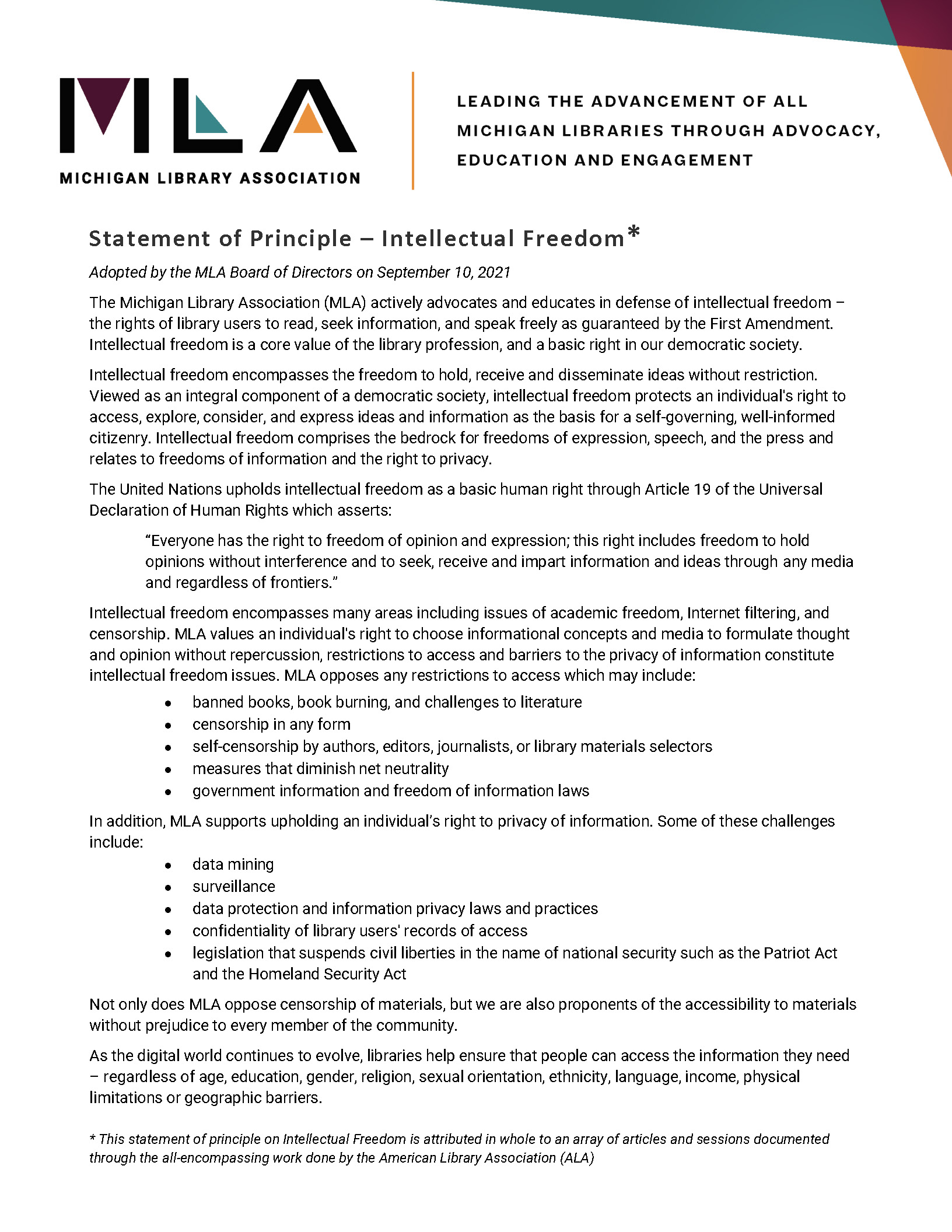 The Michigan Library Association (MLA) is a champion of access and actively advocates and educates in defense of intellectual freedom – the rights of library users to read, seek information, and speak freely as guaranteed by the First Amendment. Intellectual freedom is a core value of the library profession and a basic right in our democratic society.
The Michigan Library Association (MLA) is a champion of access and actively advocates and educates in defense of intellectual freedom – the rights of library users to read, seek information, and speak freely as guaranteed by the First Amendment. Intellectual freedom is a core value of the library profession and a basic right in our democratic society. 

